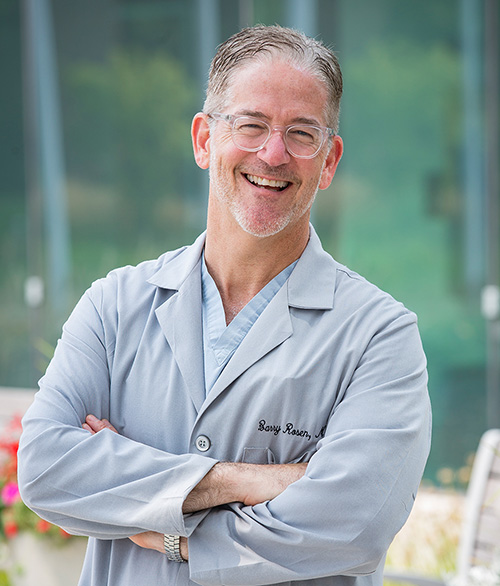It Didn’t Run in My Family Either
I was 32 when my hand brushed up against my right breast, a lump. I couldn’t stop touching it. I couldn’t stop obsessing about it. I called my sister who is a doctor and she assured me it was probably a cyst. Nonetheless she told me to call my doctor.
I remember walking into my primary care physician’s office, crying, convinced this was not a cyst. My mind was going to places that I couldn’t control. My blood pressure is normally low; when my doctor took it his expression showed me that today wasn’t normal. He sent me in for a mammogram and an ultrasound. Thankfully, my assumptions were incorrect, it was indeed a cyst. I could breathe again.
I had a follow up with my doctor a couple weeks later. He suggested that I see a breast surgeon. I looked at him, questioning his sanity & my own for that matter. I was just told that everything was fine, why would I have to go to see a breast surgeon?? He proceeded to tell me that sometimes it’s nice to have a specialist look at the results to be safe. I walked out of the office with the breast surgeon’s phone number in my purse not sure if I would call. I just wanted to move on with my life, I was done with this. However, I had a nagging feeling to just make the appointment. I didn’t know at the time, but while making that decision, I was inviting someone into my life that was going to save it one day.
I sat in her office crinkling the paper on the exam table trying to breathe through my nervousness. She walked in, a beautiful blue-eyed woman with such a calming presence that I was immediately at ease. She introduced herself & put my mammogram results up on the screen; she explained to me that I have extremely dense breast tissue (DBT). I had no idea what that meant. She showed me exactly what it looked like, vs someone who doesn’t have dense breasts. She continued to explain, “You should be monitored every year with a mammogram and an ultrasound. Mammograms aren’t enough for women with DBT, cancer can hide very easily which is why additional screening is needed.”
I sat there dumbfounded. I proceeded to tell her that I was 32 (as if she didn’t read my file) & breast cancer didn’t run in my family so this made no sense to me. She informed me that none of that mattered, I was at risk because of the DBT and it was enough of a risk for me to take this seriously.
So, that’s what I did — every year I would go in for a mammogram and every year the people performing the exam would question why I was there since I was so “young”. After that appointment, I would schedule my ultrasound with my surgeon. She would personally perform the ultrasound each year; a lot of people are amazed that a breast surgeon would do this yearly instead of being sent somewhere else for the screening. But this is what she did, and not only for me, I must add. She is a selfless doctor that I’m grateful to have in my life.
It had been 4 years since I began this routine, and this year was no different. I received my mammogram in October 2012 and was told my results were “all clear” and that I didn’t have to come back for another 4 years since I still wasn’t 40. Every year they told me the same thing, come back when you are 40, and every year my doctor told me to ignore what they said. “I make those decisions, not them.”, she declared.
I had my ultrasound in December 2012; it started out as always, I spoke incessantly, and my doctor listened. As she moved around my left breast, something was different, she was concentrating more, she was moving the wand with more purpose than usual. I kept talking as my anxiety started to rise, thinking that if I kept talking, she couldn’t tell me something I didn’t want to hear.
“Are you late for your period?”, she asked. I was late which was normal for me when under stress which I was with the holidays approaching.
“Ok, that’s probably why things look it a bit off. I’m sure it’s hormonal but to be sure I want you to get an MRI.”, she declared.
Nausea. That’s what I felt, that’s all I felt. I’m going to be sick; this cannot be happening. It’s a week before Christmas, what kind of cruel joke is this?? She assures me that she is taking this extra step to be sure & that at this point there is nothing to worry about.
This was a Monday; I had the MRI scheduled for that Wednesday. By Wednesday night I was driving home from a friend’s house, and I received a phone call that they would like me to come in the next day for a biopsy.
I laid on the table with my sister by my side. The radiologist put my hand where the suspicious spot was and asked me if I ever felt that before. I told her no. She proceeded to tell me & my sister that she didn’t think this biopsy was necessary because she wasn’t “impressed” with the MRI results to justify it. Thankfully, having a sister who is a doctor really helped because I will be blatantly honest, I was looking for any excuse to not get this test done. And this doctor was basically telling me this was a waste of all our time.
“Put the needle in.”, my sister proclaimed. I signed papers to let my sister receive the results because I felt like getting good or bad news would be best coming from her.
It was 9:00am on Christmas Eve, yes, Christmas Eve, … the phone rang. I knew it was going to be a call that changed my life. Seeing my sisters number pop up on the caller ID just confirmed this. I’m a late sleeper when I’m off work, and everyone knows not to call me before 11:00am, but this was obviously a call that had to be made.
“I got a call this morning regarding the biopsy results, and it is cancer. I’m so sorry.”, she sadly told me.
I couldn’t tell you exactly what happened next. The only thing I know for sure is there were a lot of tears. I was 36 with no family history and all clear mammogram & I was just diagnosed with breast cancer. I thought I was safe. How the hell did this happen??
This was when I realized none of that mattered.
Cancer doesn’t discriminate. Cancer doesn’t care about your economic status. Cancer doesn’t care about your race. Cancer doesn’t care about your gender. And cancer DEFINITELY doesn’t care about your age.
We are failing women all over the world based on fake criteria.
1 in 8 women will be diagnosed with breast cancer in their lifetime.
40% of women in the US have dense breast tissue. They are 4 times more likely to develop breast cancer.5% of women are diagnosed with breast cancer under the age of 40. That number might seem low to you, but to that 5% of women, that number is 100% because it happened to US. Those statistics are just that, statistics, numerical data that that takes that human portion out of the equation.
The criteria we should be concentrating on is proper screening for all women no matter their age or family history.
Breast cancer didn’t run in my family . . . now it does.
~ Jeannine Canino Bieda



 Carmen West is a Senior Global Human Capital & Change Transformation Professional.
Carmen West is a Senior Global Human Capital & Change Transformation Professional.






